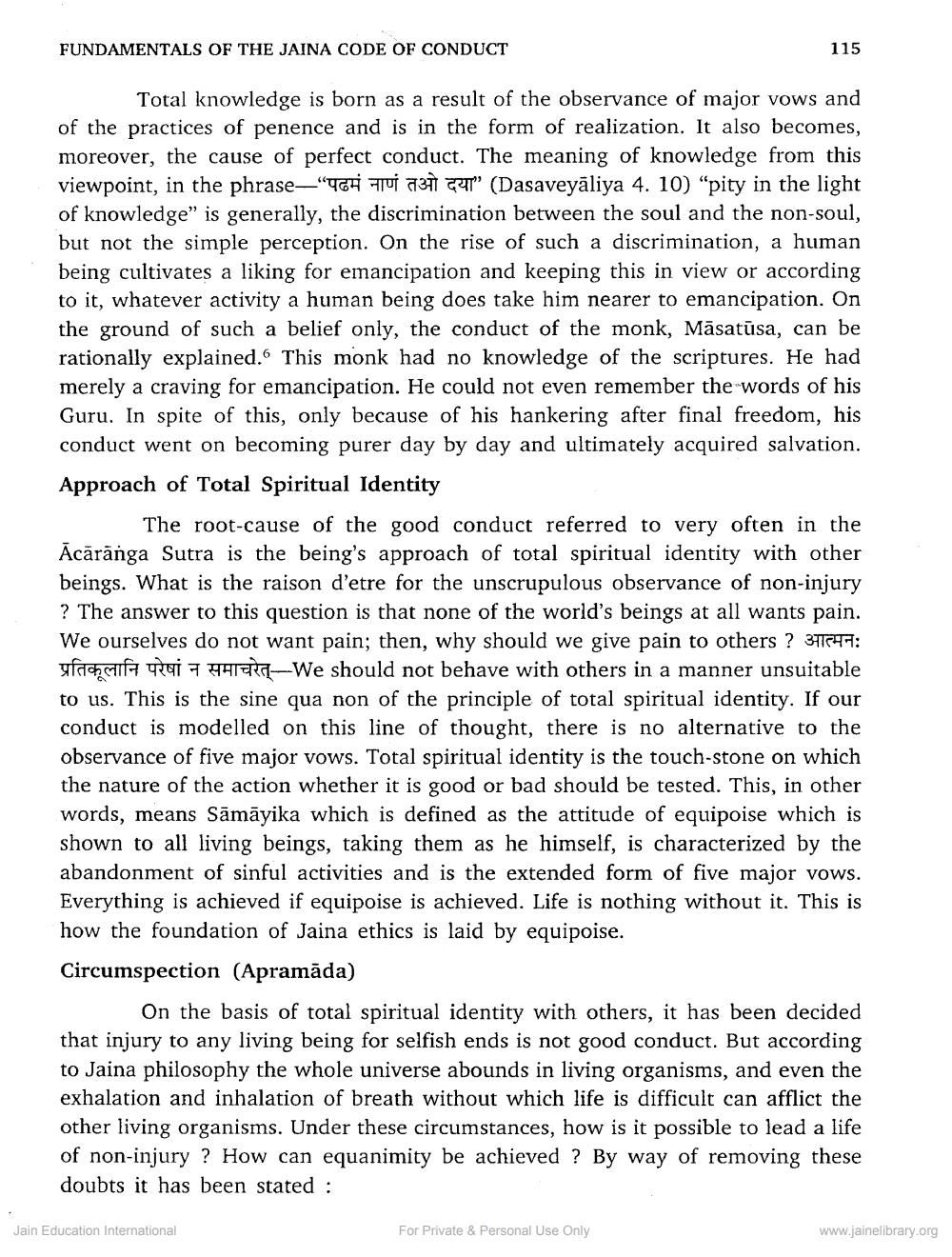________________
FUNDAMENTALS OF THE JAINA CODE OF CONDUCT
115
Total knowledge is born as a result of the observance of major vows and of the practices of penence and is in the form of realization. It also becomes, moreover, the cause of perfect conduct. The meaning of knowledge from this viewpoint, in the phrase—“T6 FUT 737T GUIT" (Dasaveyāliya 4. 10) "pity in the light of knowledge" is generally, the discrimination between the soul and the non-soul, but not the simple perception. On the rise of such a discrimination, a human being cultivates a liking for emancipation and keeping this in view or according to it, whatever activity a human being does take him nearer to emancipation. On the ground of such a belief only, the conduct of the monk, Māsatūsa, can be rationally explained. This monk had no knowledge of the scriptures. He had merely a craving for emancipation. He could not even remember the words of his Guru. In spite of this, only because of his hankering after final freedom, his conduct went on becoming purer day by day and ultimately acquired salvation. Approach of Total Spiritual Identity
The root-cause of the good conduct referred to very often in the Ācārānga Sutra is the being's approach of total spiritual identity beings. What is the raison d'etre for the unscrupulous observance of non-injury ? The answer to this question is that none of the world's beings at all wants pain. We ourselves do not want pain; then, why should we give pain to others ? 36: प्रतिकूलानि परेषां न समाचरेत्-We should not behave with others in a manner unsuitable to us. This is the sine qua non of the principle of total spiritual identity. If our conduct is modelled on this line of thought, there is no alternative to the observance of five major vows. Total spiritual identity is the touch-stone on which the nature of the action whether it is good or bad should be tested. This, in other words, means Sāmāyika which is defined as the attitude of equipoise which is shown to all living beings, taking them as he himself, is characterized by the abandonment of sinful activities and is the extended form of five major vows. Everything is achieved if equipoise is achieved. Life is nothing without it. This is how the foundation of Jaina ethics is laid by equipoise.
Circumspection (Apramāda)
On the basis of total spiritual identity with others, it has been decided that injury to any living being for selfish ends is not good conduct. But according to Jaina philosophy the whole universe abounds in living organisms, and even the exhalation and inhalation of breath without which life is difficult can afflict the other living organisms. Under these circumstances, how is it possible to lead a life of non-injury ? How can equanimity be achieved ? By way of removing these doubts it has been stated :
Jain Education International
For Private & Personal Use Only
www.jainelibrary.org




